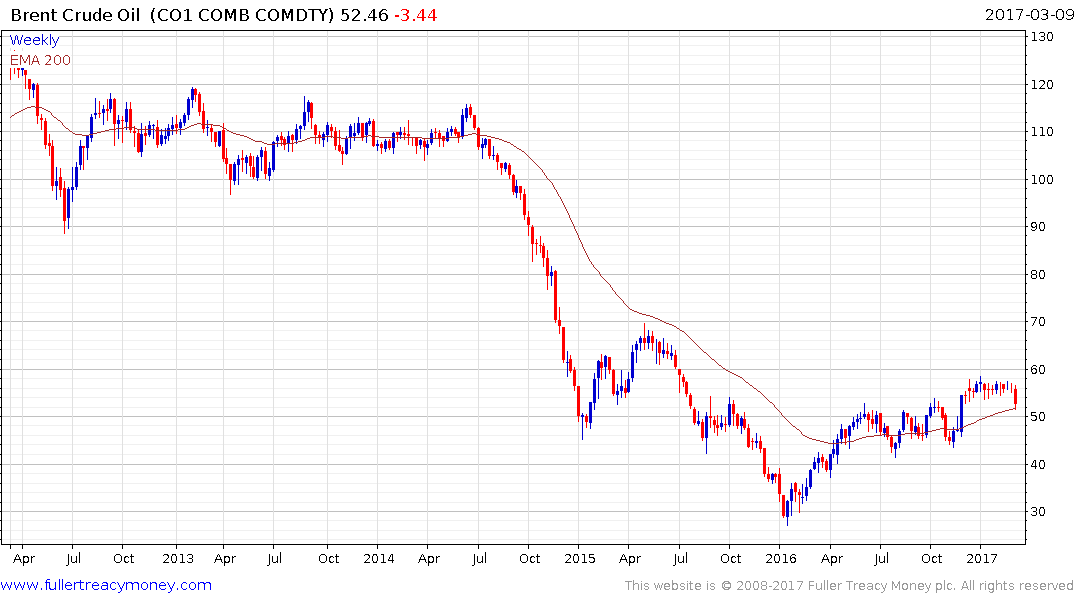A Father of Fracking Seeks to Emulate U.S. Shale Boom in Alaska
This article by Alex Nussbaum for Bloomberg may be of interest to subscribers. Here is a section:
A pioneer of the U.S. shale revolution wants to take fracking to America’s final frontier. Success could help revive Alaska’s flagging oil fortunes.
Paul Basinski, the geologist who helped discover the Eagle Ford basin in Texas, is part of a fledgling effort on Alaska’s North Slope to emulate the shale boom that reinvigorated production in the rest of the U.S. His venture, Project Icewine, has gained rights to 700,000 acres inside the Arctic Circle and says they could hold 3.6 billion barrels of oil, rivaling the legendary Eagle Ford.
While the potential is huge, the difficulty of shipping millions of gallons of water, sand and chemicals -- the ingredients used in fracking -- to one of the most remote areas on earth is nothing short of monumental. At stake is an Alaskan industry that’s seen output tumble from 2.1 million barrels a day in 1988 to 520,000 in 2016 as reserves dwindled and explorers sought cheaper supplies in shale fields to the south.
“The oil is there,” said Basinski, founder and chief executive officer at Houston-based Burgundy Xploration LLC, in an interview. “Now it’s a question of how quickly we can get it to flow and whether we can get the economics to work." One exploratory well has been drilled, he said, and a second is planned by mid year.
OPEC is riddled with problems. The first is that members with large populations like Saudi Arabia might have control over some of the world’s cheapest to exploit reserves but they have allowed domestic financial commitments to essentially turn them into high cost producers. They no longer have the flexibility to curtail supply like they did in the 1970s.
The second is that they have a lot more competition. OPEC was founded in 1960 by Iran, Iraq, Kuwait, Saudi Arabia and Venezuela. Today it has 13 members and all are competing for market share. That is quite apart from the fact that Russia needs exports to fund its domestic economy and adventurism, the USA is now exporting after a 40-year hiatus and Canada is actively exploring export options.
We might consider those OPEC’s current problems, Technology is an additional issue and it represents what could be a terminal threat to the cartel. Hydraulic fracturing and horizontal drilling change the economics of oil exploration by making previously unrecoverable oil profitable to extract. It’s one thing to go out and try and find a new cheap oil location that has never been explored its quite another to go where you know oil rests and figure out how to extract it economically. Luck is the answer to the first problem, technology to the second.
Technology is also delivering better and cheaper solar cells, batteries with greater energy density and recharging rates as well as industrial and domestic options. This story highlighting Panasonic’s new solar roof for the Toyota Prius is an example.
The Jevons Paradox suggests we are unlikely to see peak demand for oil any time soon, but the price of the commodity is likely to experience a secular headwind as the full implications of a decade-long trend of investing in additional supply plays out.

Brent Crude extended the breakdown from its three-month range today and is now testing the region of the trend mean. It needs to bounce in a dynamic fashion soon, to countermand failed upside break characteristics.
Back to top


